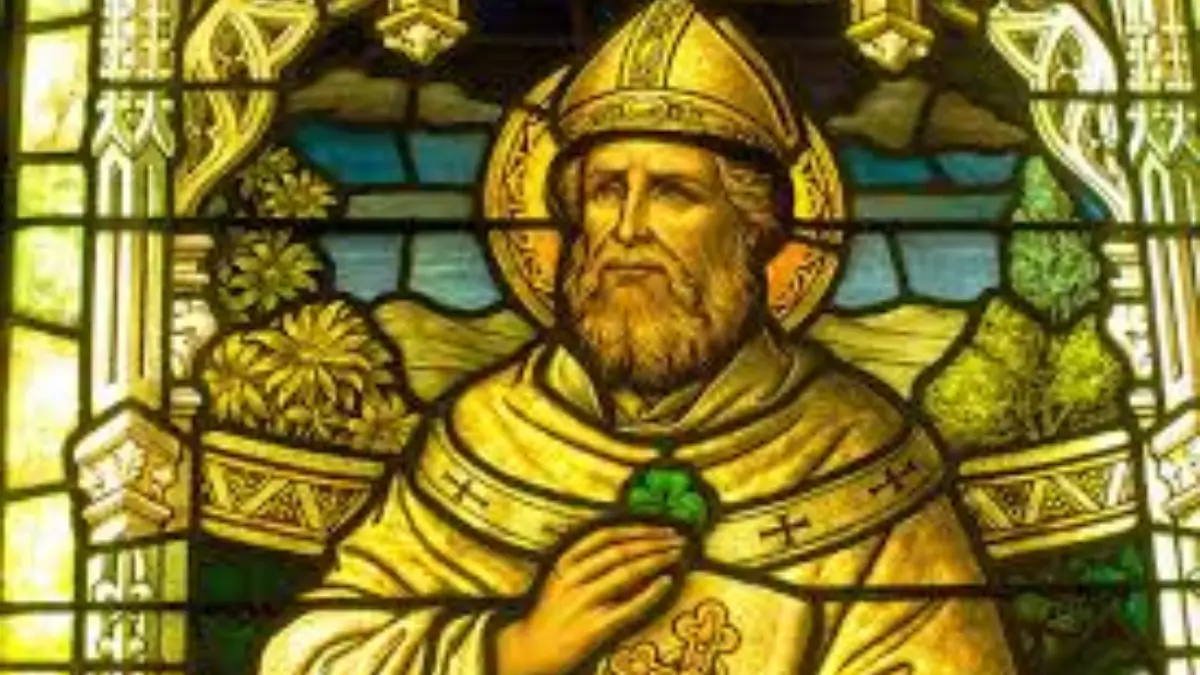St. Patrick, the patron saint of Ireland, is one of the world’s most celebrated figures. But when was he canonized? This question often leads to a surprising revelation: St. Patrick was never formally canonized by a Pope, a process typically required for sainthood in the Catholic Church.
The Life and Times of St. Patrick
St. Patrick, known as the patron saint of Ireland, was born in Britain in the late 4th century. His early life was marked by hardship when at the age of 16, he was captured by Irish pirates and taken as a slave to Ireland.
He spent six years in captivity, during which he turned to his faith for solace. He managed to escape and return to his family in Britain, but his experiences in Ireland had a profound impact on him.
Feeling a divine calling, St. Patrick decided to return to Ireland, this time as a missionary. He dedicated the rest of his life to spreading Christianity among the Irish people.
His teachings were instrumental in converting the Irish to Christianity, and he established numerous churches across the country. Despite facing numerous challenges, his faith and determination never wavered. His influence on Irish Christianity is still felt today, centuries after his death.

Canonization in the Catholic Church
Canonization is the formal process by which the Catholic Church declares a deceased person to be a saint. This process involves a thorough examination of the candidate’s life and works, verification of miracles attributed to their intercession, and a review of their writings for orthodoxy.
However, it’s important to note that this formal process of canonization was established in the 12th century, long after St. Patrick’s time.
In the early Church, before the formal process of canonization was established, individuals were often proclaimed saints through the popular devotion of the faithful.
This was the case with St. Patrick. His widespread veneration by the Irish people, his significant influence on Irish Christianity, and the numerous miracles attributed to him contributed to his recognition as a saint.
Despite the lack of formal canonization, St. Patrick is universally recognized as a saint in the eyes of the faithful. His life serves as a testament to the power of faith and the impact one person can have on the course of history. His legacy continues to inspire millions around the world, making him one of the most celebrated figures in Christian history.
St. Patrick’s Sainthood
St. Patrick’s sainthood is a unique case in the annals of the Catholic Church. Unlike the saints of the modern era, who undergo a rigorous process of canonization that includes the verification of miracles and examination of their life and works, St. Patrick was proclaimed a saint through a different route.
This route was the popular devotion of the faithful, a practice that was common in the early Church before the formal process of canonization was established.
The people of Ireland, moved by his teachings and the transformation he brought about in their society, venerated St. Patrick. His influence on Irish Christianity was profound, and the numerous miracles attributed to him further solidified his status as a saint.
Despite the lack of formal canonization, St. Patrick is universally recognized as a saint in the eyes of the faithful. His life serves as a testament to the power of faith and the impact one person can have on the course of history.
The Legacy of St. Patrick
The legacy of St. Patrick extends far beyond the shores of Ireland. His influence is felt worldwide, particularly on March 17th, the date of his death, which is celebrated as St. Patrick’s Day. This day is marked by parades, the wearing of green attire, and public celebrations. It is a testament to the enduring influence of St. Patrick and a celebration of Irish culture and heritage.
St. Patrick’s teachings and works laid the foundation for Christianity in Ireland. His life story of captivity, escape and return as a missionary continues to inspire millions around the world. His dedication to his faith and his determination to spread Christianity in a land where he was once a slave is a powerful narrative that resonates with many.
Moreover, St. Patrick’s influence extends to the realm of literature and art. He is often depicted in various forms of art, and his life has been the subject of numerous literary works. His writings, particularly his Confession, provide valuable insights into his life and the times he lived in.
Conclusion
St. Patrick’s life and legacy continue to inspire millions around the world. Despite never being formally canonized by the Catholic Church, his widespread veneration and significant contributions to Christianity in Ireland have solidified his status as a saint. His teachings laid the foundation for Christianity in Ireland, and his influence is still felt today, centuries after his death.
His story serves as a testament to the power of faith and the impact one person can have on the course of history. As we celebrate St. Patrick’s Day every year, we are reminded of his enduring legacy and the rich cultural heritage of Ireland. His life and works continue to be a source of inspiration and a beacon of faith for many.
FAQ
St. Patrick was never formally canonized by the Catholic Church. This is due to the era he lived in. During the first millennium, there was no formal canonization process in the Catholic Church. His sainthood was recognized through the popular devotion of the faithful.
After becoming a priest and helping to spread Christianity throughout Ireland, St. Patrick was likely proclaimed a saint by popular acclaim. His dedication to his faith and his missionary work earned him the respect and veneration of the people.
St. Patrick was not canonized by any specific individual or Pope. His sainthood was recognized through the popular devotion of the faithful, a practice common in the early Church before the formal process of canonization was established. His influence on Irish Christianity was profound, leading to his recognition as a saint.
Yes, despite not being formally canonized, St. Patrick is universally recognized as a saint in the eyes of the faithful. His teachings and works laid the foundation for Christianity in Ireland, and his influence is still felt today.
St. Patrick is renowned for his missionary work and dedication to spreading the message of Christianity throughout Ireland. His life and legacy continue to inspire millions around the world.

